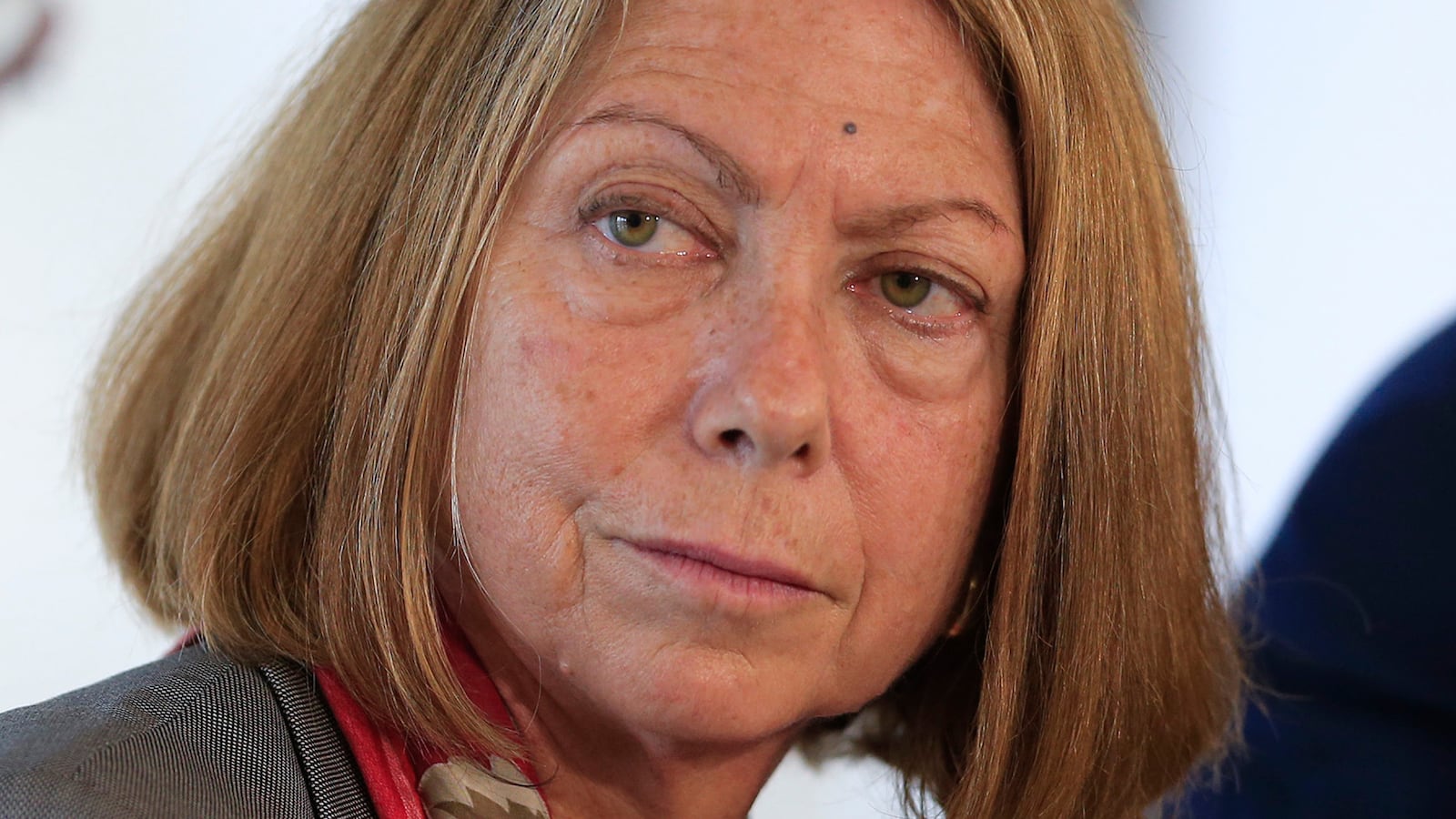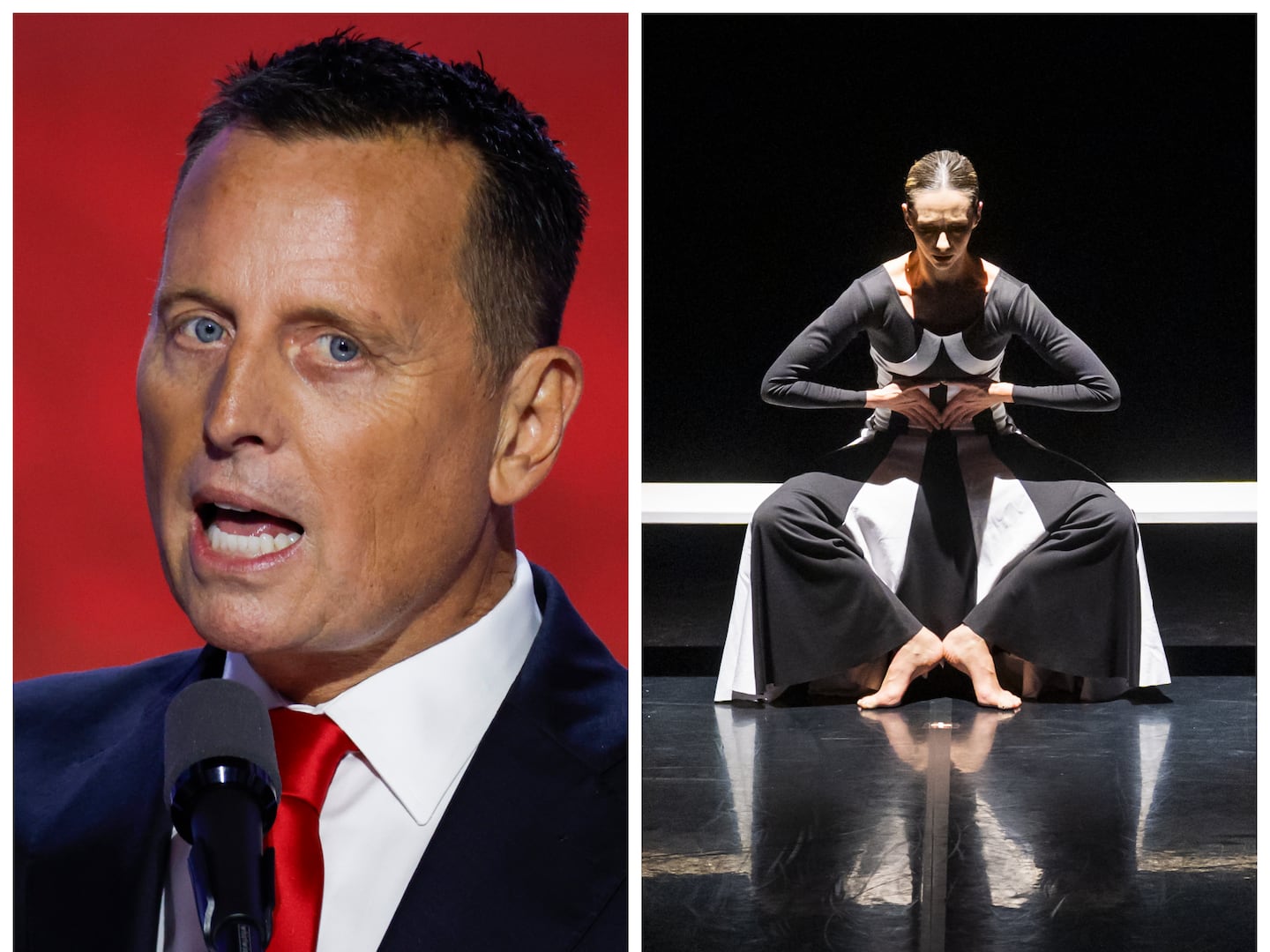It may not have been the tweet heard ’round the world, but it was certainly heard—like a thunderclap—at The New York Times’ headquarters at 620 Eighth Avenue in Manhattan.
“Kind of pisses me off that @ nytimes is still asking Who Is Ocasio-Cortez? when it should have covered her campaign,” Jill Abramson erupted on Twitter on Wednesday morning—a biting reference to the newspaper’s original headline concerning the 28-year-old socialist’s shocking Democratic primary upset, a landslide actually, over incumbent Joe Crowley in New York’s 14th Congressional District.
Indeed, a quick review of the Times’ coverage of the primary race turned up mention of and quotes from Alexandria Ocasio-Cortez in two news stories prior to Election Night, and a few name-checks in editorials—one of which, published in the June 20 print edition, noted that she’s “a challenger [Crowley] is heavily favored to beat.”
“Missing her rise [is] akin to not seeing Trump’s win coming in 2016,” Abramson added in her tweet—an even more biting reference to the Times’ self-acknowledged failings in the paper’s reporting of the presidential campaign.
In response to Abramson’s critique—which she elaborated in several emailed comments shared with the Times—Times spokeswoman Eileen Murphy told The Daily Beast: “We have enormous respect for Jill and deeply appreciate her passion. Criticism and feedback helps us do better work and we’re always open to it. On these specifics though, we just disagree with Jill.” A few hours after Abramson’s tweet, the headline phrase that pissed her off, “Who is Alexandria Ocasia-Cortez?” was changed online to “Alexandria Ocasio-Cortez: A 28-Year-Old Democratic Giant Slayer.”
The Times, of course, is used to reader complaints—but not to public spankings from former executive editors.
Abramson, 64, famously held that job for nearly three years—the first and only woman to do so—until she was summarily sacked amid an unseemly public-relations melee in May 2014.
Given all that history—which included then-Publisher Arthur Ochs Sulzberger Jr. talking publicly about her alleged newsroom management flaws—Abramson, these days a senior lecturer at Harvard, is something of a King Kong Kibitzer.
“I fear sounding like a jealous old-timer. I’ve resisted critiquing the place publicly, but this shit is bad,” Abramson wrote in an email to this reporter, in which she elaborated on her tweet.
“I’m feeling about the NYT now like I did when my son cheated on a test in 10th grade,” she wrote. “I loved him to death, believed he was a thoroughly wonderful young man, but he needed a course correction. So I left my desk at The NYT, where I was DC [Bureau] Chief, met his school bus and read him the riot act. He needed a course correction.
“So does the NYT… it’s making horrible mistakes left and right. Here are a few:
“Not covering the ‘stunning’ upset of Joe Crowley. It’s the NYT that was undeservedly stunned, letting down its readers.
“That horrible 3,000-word exposé on Ali Watkins [the Times reporter who’s caught up in a leak investigation involving her ex-boyfriend, a former top staffer on the Senate Intelligence Committee] that aired her sex life and conflicts while not probing why she was hired, responsibility of editors, or, most crucially, the value of her journalism (her Carter Page scoop in BuzzFeed actually helped lead to appt of Mueller).
“That story hung a 26-year-old young woman out to dry. It was unimaginable to me what the pain must be like for her.
“Readers, meanwhile, the most important NYT constituency, were left in a state of confusion.
“Decision by international and new TV show plan to focus on personal feelings and experiences of NYT journalists covering news.
“More narcissism: It’s always about us. Yikes. Distance is part of journalism’s discipline.
“They need a course correction.
“Am I wrong?”
In a subsequent phone interview, Abramson tried to soften the sting of her critiques, saying they come from “a place of pure love” for the newspaper, and adding that “Dean [Baquet] is doing a great job” as executive editor.
“I would describe my tweet as momentary disappointment, not deep dissatisfaction,” she said.
However, Abramson didn’t back away from her assessments.
The Ali Watkins profile, she said, “read like a steamy romance novel in parts,” adding that it amounted to “a front-page piece about ‘my love affair with someone.’ It’s just crucifying. How do you then show up for work? I don’t see a good resolution for that.”
Abramson, a frequent and vociferous critic of Barack Obama’s administration for its aggressive attempts to uncover reporters’ confidential sources, also faulted the story for placing more focus on Watkins’ personal life—and her admittedly questionable decision to withhold information about the government’s actions against her from her employer—than on the Trump Justice Department’s war on leaks.
“As journalists, we want to leap to the defense of anybody embroiled in this hideous leak investigation,” she said.
Abramson—who, as managing editor, pointedly declined to participate in Page One, the 2011 documentary about the Times—said she hasn’t watched the Showtime series The Fourth Estate.
And doesn’t intend to.
“From four years of teaching at Harvard, so many of my students are interested in journalism, but they mostly want to write first-person, highly personal narratives about themselves. That may reflect their age. But I think there’s too much of that in journalism. It’s not about us. It’s about the world, and covering the world.”
The Times, she said, remains essential: “Now more than ever, it stands at the pinnacle of the news food chain.”
Abramson—who left the Times under contentious circumstances—insisted she’s no longer angry (and indeed attended the recent retirement party for former publisher Sulzberger, the man who fired her four years ago.)
“Absolutely not,” she said. “Anyone who spends as much time as I do with a two-and-a-half-year old [a reference to her granddaughter Eloise] has zero rage.”






